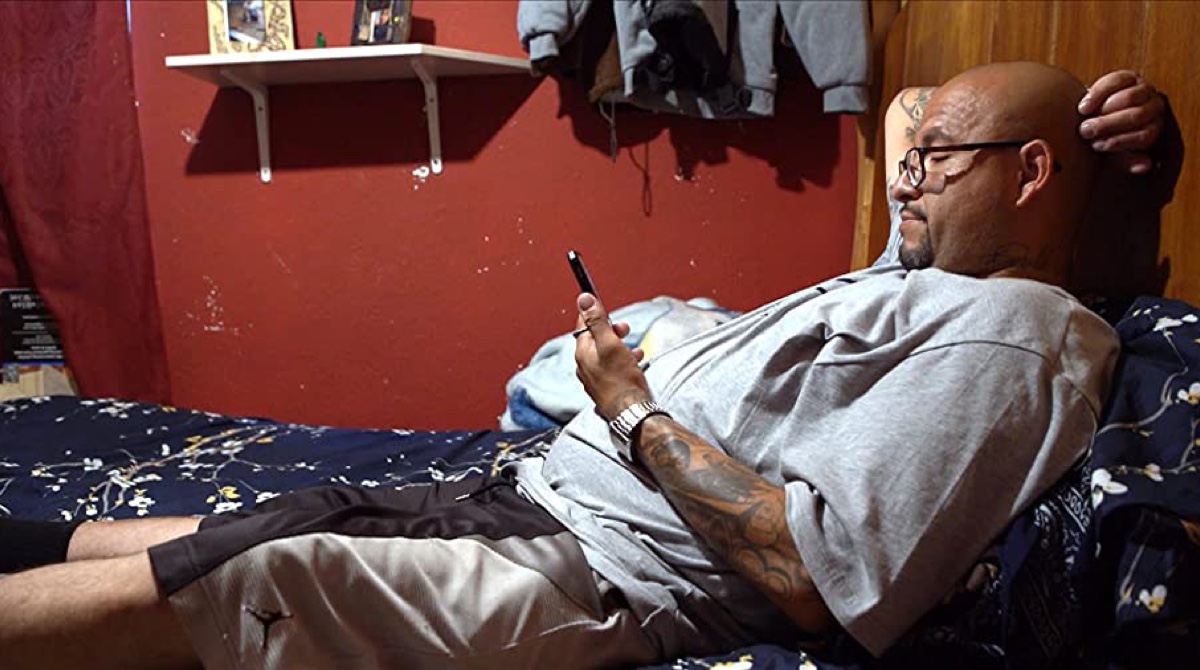
23/08/2021
There is no happy ending for the characters of our film
In Tijuana, around 30,000 Mexicans are forced to leave the United States every year. Many amongst them have lived for decades on the US side of the border. They have worked, paid taxes, and started families. The film ‘On the Line’ speaks about them, Americans forced to leave America, and we are watching it in the competition of this year’s Mediterranean Film Festival. On this occasion we have talked to one of the authors, Alex Gohari. What attracted you to this subject?
We have both been living in Mexico for five or six years and we have always wanted to make a film on the subject of migrants. I am also a child of migrants, A French whose father came to that country from Iran. We had done a lot of research about Mexicans and people from the Central America who tried to reach the USA with the goal of a better life, so we decided to make a film about that. During our research we came to Tijuana where we met people who were trying to cross the border. An interesting fact was that we met some people there who don’t even speak Spanish. That means they are Mexicans only because they were born there, but a great number of them went to the USA right after they were born and this is their country. Fathers and mothers who have lived in the United States for decades are being separated from their children. Then, we discovered a big phenomenon, for many of them the "Call Centres" of Tijuana represent the only salvation. On the phone 10 hours a day to American citizens, they help run the economy of the very country that has rejected them. This means that the American companies are exploiting them, using them because they have excellent competencies and perfect speaking skills. Basically, because they are Americans.
With Donald Trump's migration policy, Mexico is experiencing a massive wave of repatriation. What is the situation like now, with Biden?
Nothing is different since Biden became the president, there is even larger number of deportations to Mexico. We had Bush, Obama, trump… you can change the president, but in the end the statistics are always growing, year after year. The only difference is that Trump had an attitude of not caring about whom he is deporting, a mother of four Americans or someone else. Biden and Obama at least sent messages that they are deporting criminals. But the irony in the whole story is that, even if these people are criminals, they are American criminals. This is what the country has done of them.South of the wall, racial exclusion is merciless and there is much to be done to make amends to those who are forced to leave America.
Your protagonists are in a limbo today, ‘on the line’?
This border town has become an airlock between two worlds where many Mexicans endure the hardships of living life as a migrant. We found three cases which are tipical Americans indeed. One of them is a woman whose son fought in Afghanistan, whereas the other one went to the USA as a baby and up until today he didn't even know he doesn't have American papers, and the third one is an American veteran from the Vietnamese war. We all know how much Americans care about their veterans, imagine what an irony!Their lives changed in a second, from everything they had, the material and family wealth, they came nowhere. Their life stopped. Tijuana is a horrible place. Poor and sad. But they choose to live there, exclusively to be closer to America, and even on the other side of the wall.
Have you succeeded to screen the film in the USA and what are the reaction like?
We have tried to screen this film in the USA through different channels, but haven’t succeeded. Namely, there have been a lot of stories in this country about migrants, but I don’t think any of them show things from this perspective. The fact that America deports Americans. Honestly, we wanted to make a film that is universal, that we can watch in Europe, Mexico, and the US.We wanted to make it for everyone, and we’re still trying to show it everywhere.
You mention that this is a universal message, but to what extent Europeans can understand this story and which people they could compare it to in our country, given that we also have a long history of different segregations.
This is a good question, but I am not sure I can make a good comparison. My personal experience would say to French, considering that I am also a son of a migrant. My father came to france from Iran as a migrant. But, it is hard to compare. Also, the status of Mexicans in the USA is different. There are many of them and they live differently. American society is ruthless not only towards them, but also towards the poor. In case you belong to this group of people in America, your life is terrible. It’s just work, you share a room with someone, doing everything just to survive in that country.Observing it this way, I can compare it to the status of Africans in Europe. None of them lives the ‘American dream’, but they all send pictures back home as if it were that way. Their success is the fact they came to that country, but their life is mere survival.
Where are the protagonists of your film today?
Is there a happy ending in the end? All three of them are still without American papers, with the exception of a woman who returned to the USA, but without papers. They are still in a bad mental state and we are very worried about them. I’m afraid there’s no happy ending for the characters of our film.


